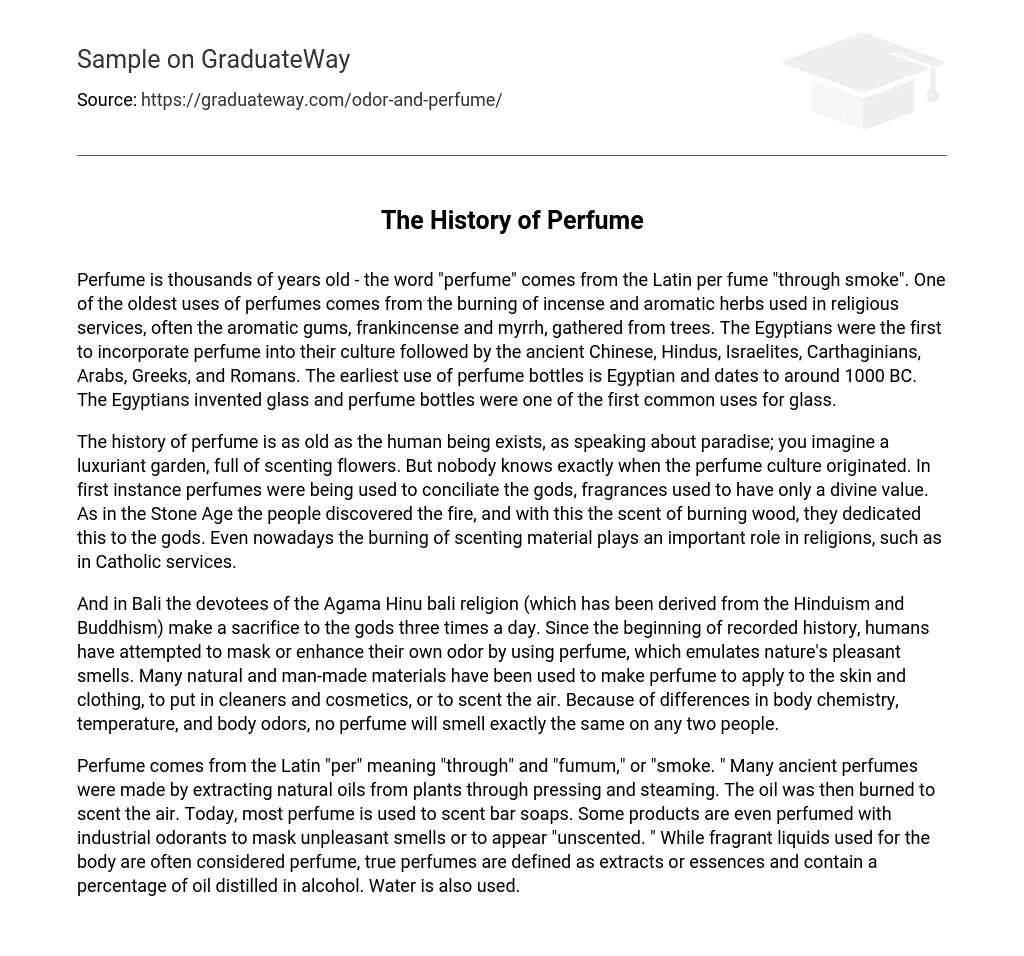The term “perfume” has a long history that goes back thousands of years, originating from the Latin per fume, which means “through smoke”. In ancient times, it was used during religious ceremonies where incense and aromatic herbs were burned. These included fragrant gums like frankincense and myrrh obtained from trees. The use of perfume first began with the Egyptians and later spread to civilizations such as the Chinese, Hindus, Israelites, Carthaginians, Arabs, Greeks, and Romans. The oldest perfume bottles known to us were discovered in Egypt around 1000 BC. The Egyptians were pioneers in glassmaking and extensively utilized glass for their perfume bottles.
The history of perfume is as ancient as human existence itself. When we think of paradise, we envision a lush garden filled with fragrant flowers. However, the exact origins of perfume culture remain unknown. Initially, perfumes were used to appease the gods, with fragrances solely possessing divine significance. In the Stone Age, as humans discovered fire and the aroma of burning wood, they attributed this scent to the gods. Today, the burning of fragrant materials continues to hold importance in various religions, including Catholic services.
In Bali, followers of the Agama Hinu Bali religion perform three daily sacrificial rituals to pay homage to their gods. This religious practice draws influences from both Hinduism and Buddhism.
Throughout history, people have attempted to modify or enhance their natural scent through the use of perfumes, which replicate pleasant smells found in nature. Perfumes are made from various natural and synthetic substances that can be applied on the body and clothes, as well as used in cleaning products, cosmetics, and air fresheners.
Due to differences in body chemistry, temperature, and inherent fragrance among individuals, each person will experience a distinct aroma when wearing perfume.
The term “perfume” comes from the Latin words “per,” meaning “through,” and “fumum,” which means “smoke.” In ancient times, plants were pressed and steamed to extract fragrant oils. These oils were then burned to release their scent into the air. Nowadays, perfumes are commonly used in bar soaps for fragrance. Some products also use industrial odorants to mask unpleasant smells or create the perception of being odorless. While scented liquids applied on the body are often called perfume, true perfumes are specifically defined as extracts or essences that contain alcohol-distilled oil and involve water.





